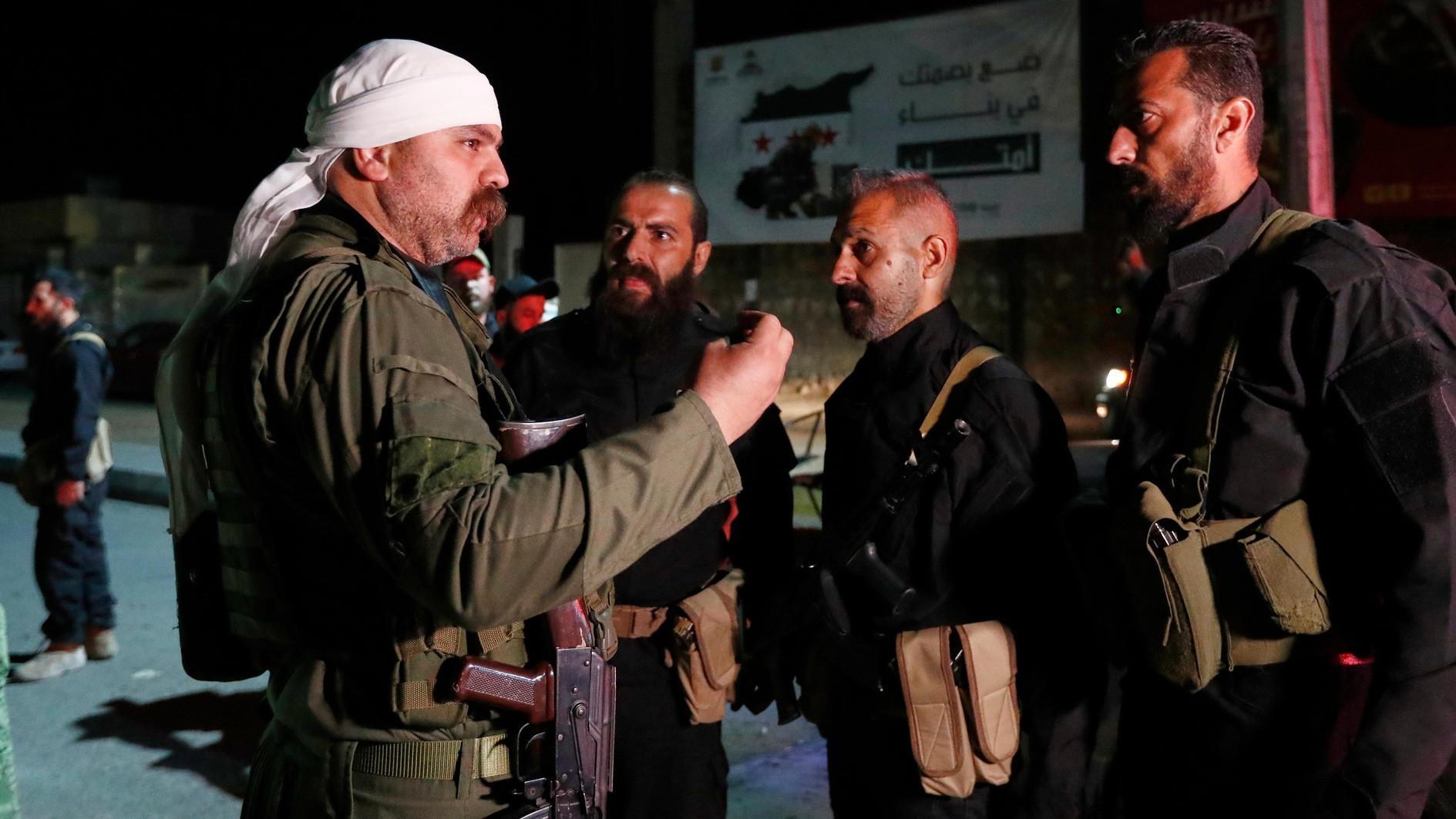
A Druze gunman, left, speaks with Syrian security forces who reached a deal with Druze gunmen to deploy around the southern Damascus suburb of Jaramana that has witnessed fighting earlier this week in Damascus, Syria, early Friday, May 2, 2025
Israel's military said on May 2 it launched air strikes near the presidential palace in Damascus after the country's defense minister threatened intervention if Syrian authorities failed to protect the Druze minority.
The strike came after days of clashes between gunmen and fighters who belong to the Druze minority sect near the capital. The clashes left more than 100 people dead or wounded.
“This is a clear message to the Syrian regime. We will not allow the deployment of forces south of Damascus or any threat to the Druze community," said the joint statement by Israeli Prime Minister Benjamin Netanyhau and his Defense Minister Israel Katz.
Pro-government Syrian media outlets said the strike hit close to the People’s Palace on a hill overlooking the city.
“When [Syrian leader Ahmed al-Sharaa] wakes up in the morning and sees the results of the Israeli Air Force fighter jets strike, he understands that Israel is determined to prevent harm to the Druze in Syria,” Katz said in another statement.
Katz said that Sharaa should protect the Druze from “attack by jihadist rioters and to enable the hundreds of thousands of Druze in Sweida and Jabal al-Druze to defend themselves on their own, and not to send jihadist forces into the villages,” Katz said.
“It is our duty to protect the Druze in Syria from harm, for the sake of our Druze brothers in Israel, their loyalty to the state, and their immense contribution to Israel’s security,” he added.
The May 2 strike was Israel's second on Syria this week as it carried out an attack against "an extremist group" that attacked members of the Druze community on April 30.
The clashes broke out around midnight April 28 after an audio clip circulated on social media of a man criticizing Islam’s Prophet Muhammad. The audio was attributed to a Druze cleric. But cleric Marwan Kiwan said in a video posted on social media that he was not responsible for the audio, which angered many Sunni Muslims.
The Druze religious sect is a minority group that began as a 10th-century offshoot of Ismailism, a branch of Shiite Islam. More than half of the roughly 1 million Druze worldwide live in Syria, largely in the southern Sweida province and some suburbs of Damascus.
Most of the other Druze live in Lebanon and Israel, including in the Golan Heights, which Israel captured from Syria in the 1967 Mideast War and annexed in 1981.
In Israel and the Israeli-annexed Golan Heights, there are around 150,000 Druze.
Most of those in Israel hold Israeli citizenship and serve in the military. By contrast, most of the roughly 23,000 who live in the annexed Golan do not hold Israeli citizenship and still identify as Syrians.
Israel sees the new forces in Syria as jihadists and has warned them to protect the Druze minority, with Defence Minister Israel Katz saying his country could otherwise respond "with significant force.”
Following the clashes, the Syrian government announced that it reached an agreement with residents of Jaramana city in the Damascus countryside to enhance security and hand over weapons to the state.
As part of the deal, forces from the defines ministry will deploy around Jaramana without going inside.
Meanwhile, Druze religious leaders and elders affirmed their commitment to a united Syria, stressing their rejection of division or separatism.
Israeli Foreign Minister Gideon Saar on urged the international community to protect Syria’s Druze minority from the country’s new leadership.
International community must “fulfill its duty to protect minorities in Syria, and specifically the Druze, from the regime and its terrorist gangs, and not condone the grave events that are taking place there.”